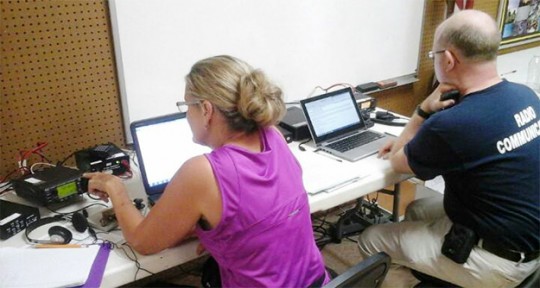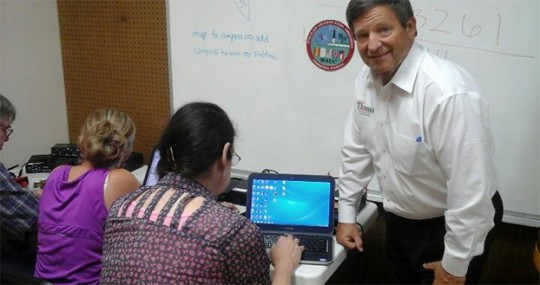Hams Demonstrate Amateur Radio Emergency Communications
June 28, 2015
It’s Amateur Radio Week, and the Five Flags Amateur Radio Association held a 24-hour public demonstration of emergency communications this weekend.
The public had a chance to meet and talk with Escambia County ham radio operators and see for themselves what the Amateur Radio Service is about as hams across the country held field days this weekend. Visitors were able to learn how ham emergency communications work, see the new capabilities of ham radio and learn how to obtain their own FCC radio license before the next disaster strikes.
Escambia County ham radio operators, as part of Amateur Radio Emergency Service (ARES), have provided emergency communications support to Escambia County Emergency Management, the America Red Cross and other agencies for several years. They were on duty during Hurricanes Ivan and Katrina, during other hurricanes, the major flooding event, and most recently during the winter ice storm of 2014.
The field day was held at Escambia Search and Rescue, 9530 Nims Lane, just off Nine Mile Road.
Pictured: Amateur radio field day at Escambia Search and Rescue Saturday. Pictured below: Escambia School Superintendent Malcolm Thomas stopped by to learn more about amateur ham services. Photos courtesy Jim Walters, ESAR, for NorthEscambia.com, click to enlarge.
Comments
3 Responses to “Hams Demonstrate Amateur Radio Emergency Communications”





Wondering if Supt. Thomas is a HAM?
Ham Radio or also known as Amateur Radio is a great hobby to get into. All you need nowdays to pass the entry level is a 35 question exam. No code is required anymore. We are regulated by the FCC. I had fun this weekend working several stations at my house. Chris KI4GGH
High school I graduated from had a large population of military family kids and there was great and varied interest. We had “Clubs” that met one day per week for an activity period and the “Amateur Radio Club” was one. I was not a member but I do remember they communicated with others all around the world and that was fascinating. I am sure that many when old enough got their licenses.
The radio sets back then used vacuum tubes and were quite large and bulky compared to the new sleek and compact sets of today.
Wishing that schools had time for some same activities during the day.
Alas, the kids have to study for The TEST…..